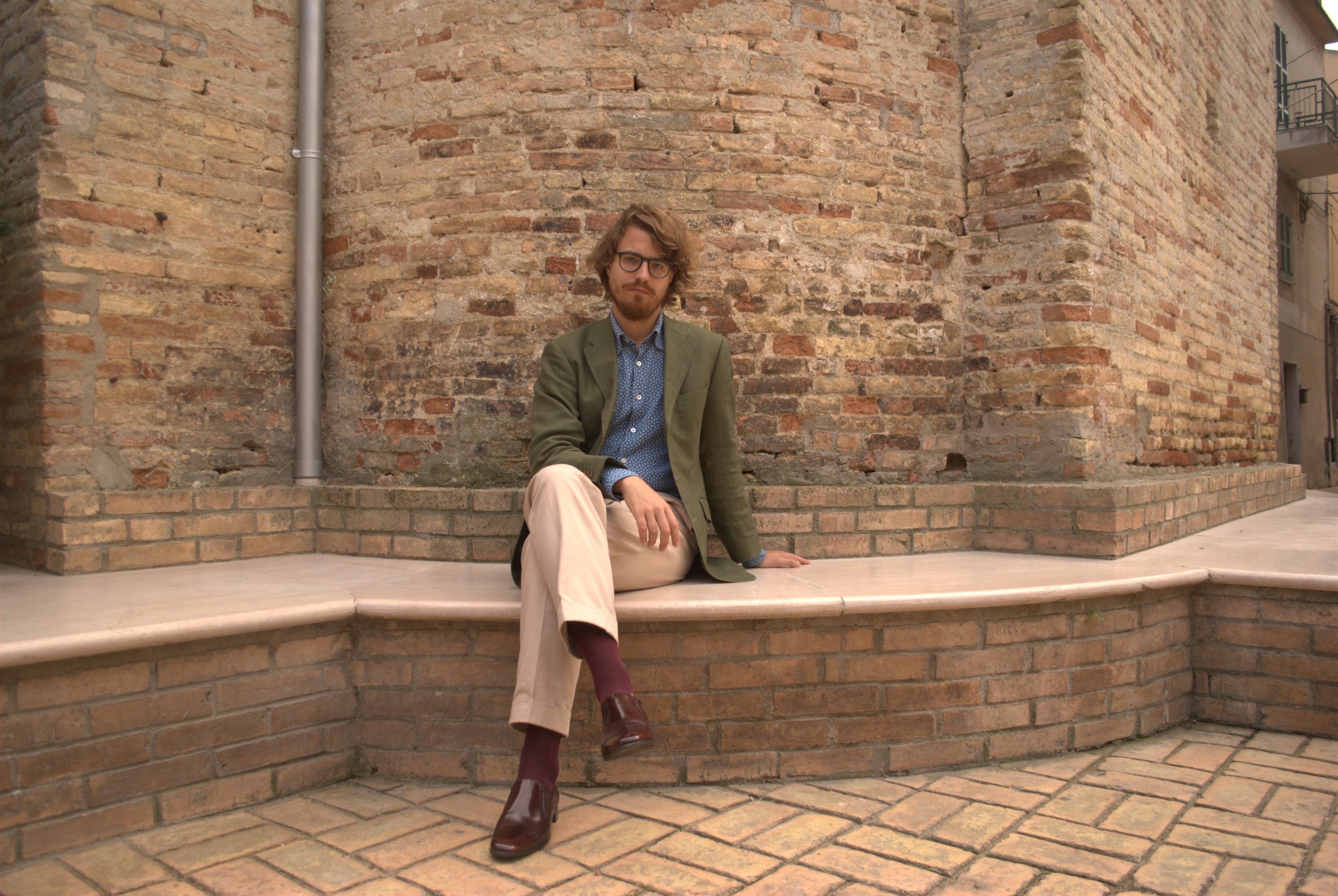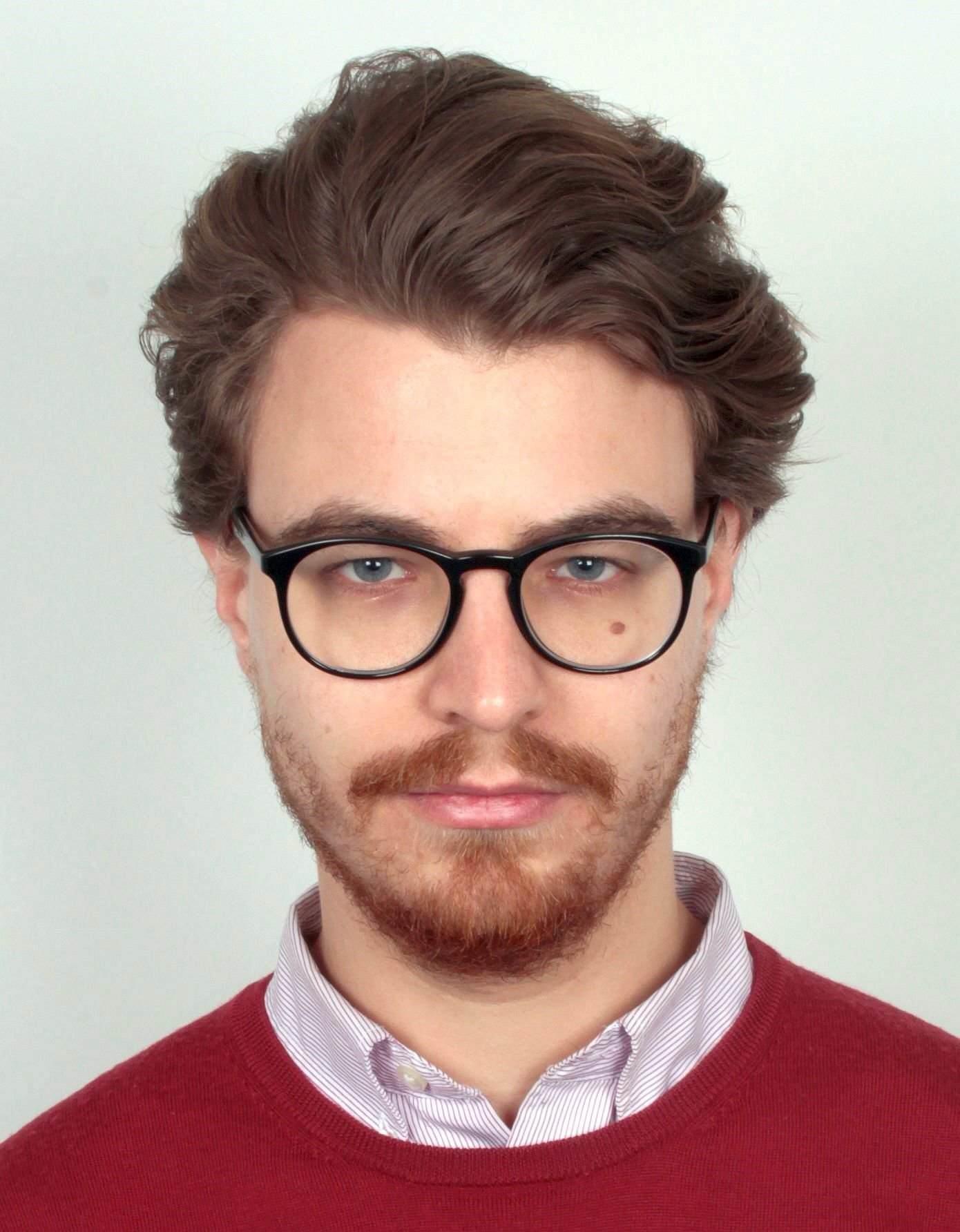
Benedek Kruchió is co-organiser of a conference on ancient Greek novelist Heliodorus which updates a unique Cambridge conference.
Heliodorus’ work shows why the later period is a good example of the fascinating interaction of cultures in late antiquity and of the artistic potential of cultural and ideological plurality.
Benedek Kruchió
A Gates Cambridge Scholar’s fascination with an ancient Greek novel, which highlights the complexity of late Greek culture, has provided the springboard for the first major conference on its author, Heliodorus, for 20 years.
The Heliodorus in New Contexts conference will take place in Cambridge in December, 20 years after the publication of the papers presented at the last comprehensive conference on the author, also held in Cambridge.
The conference has been put together by Gates Cambridge Scholar Benedek Kruchió [2017] and Dr Claire Jackson from the Faculty of Classics at the University of Cambridge.
The 1997 Laurence Seminar, whose papers were published in a collected volume of research on Heliodorus the following year, helped to crystallise emerging interest in the ancient Greek novel. Although interest in the ancient novels in general, and Heliodorus in particular, has increased in the interim, that conference and its published papers have remained unique in scholarship on the Greek novel: there have been no further symposia and no edited volume or English-language monograph devoted to Heliodorus exclusively.
Before the 1980s, the general consensus in academia was that the classical period was the peak of Greek literature and what followed was poor quality and decadent. For Benedek, though, Heliodorus, who probably lived about 800 years later than Socrates, is one of the most an extraordinarily fascinating texts in ancient Greek literature. “A lot of people used to think that the cultural pinnacle of Greek antiquity was a time when the Greeks were dominating the Mediterranean region and not influenced by other cultures; in fact, scholars used to think that this supposed cultural purity was essential to the greatness of the Greeks,” he says.
“Heliodorus’ work shows why the later period is a good example of the fascinating interaction of cultures in late antiquity and of the artistic potential of cultural and ideological plurality.”
While scholarship on Heliodorus has been growing in popularity and visibility, with the first Greek-English edition of Heliodorus – John Morgan’s Loeb – close to completion, Benedek and Dr Jackson felt scholars lacked a platform to simultaneously bring together future plans for the direction of the field. The December conference aims to bring together the 1998 generation of academics and other established scholars with younger Heliodoran scholars to form a community which can stimulate new work and ideas about this novel.
The conference, which is funded by St John’s College and the Faculty of Classics, will focus on Heliodorus’ novel Aethiopica, described by the organisers as the "ultimate Greek novel in many respects" and the culmination of ancient storytelling. They argue that Heliodorus’ work has had a strong influence in shaping the development of the medieval Greek romance and the early modern novel. Nevertheless, Benedek says there is still a lack of comprehensive and holistic discussion of the Aethiopica’s complex aspects and its wide-ranging implications for narratology, philosophy, religion and cultural identity.
Contributors will come from across the Humanities and will focus on themes such as Byzantine and early modern reception of Heliodorus, the novel's relationship with earlier narrative genres, its place within a late antique context, and Heliodorus’ visual culture.
The organisers have asked all contributors to submit their papers before the conference in December so they can be discussed thoroughly at the symposium and published soon afterwards. “A conference volume on Heliodorus would provide a snapshot of the state of the scholarship at a pivotal point,” says Benedek. “A lot of people work on Heliodorus. However, it would be good to encourage scholars to devote more time and energy to this extraordinarily complex work, which not just deserves but even demands it. The last edited volume on Heliodoran studies was published 20 years ago. We felt something needed to be done and that this was the perfect place and the perfect time.”
Early years
Benedek, who was born in Hungary and moved to Vienna as a child, came to study Classics by a circuitous route. He developed an early love of ancient culture through Latin and Greek studies at school and went on school trips to Italy and Greece. He loved Greek literature in particular and was fascinated by the abundance of sources from such a distant time.
However, when he finished school, he was undecided about what to study at university. He went to Budapest to study Chemistry in his first year, but realised he missed the Humanities. So he switched to the University of Vienna and the University of Music and Performing Arts Graz and took Classics and Bassoon Performance Studies. After two years, he realised that his strength lay more in the Humanities than music, although he still plays bassoon at Cambridge and is the graduate representative of St John’s College Music Society.
Having finished his BA degree a year early, Benedek spent the last year of his undergraduate studies reading a lot of Greek and Latin texts, including all the extant Greek novels. Among them was Heliodorus' Aethiopica. His fascination with the novel was ignited. Benedek says he was drawn to the text by two things. The first is the novel’s sophisticated narrative structure: the Aethiopica starts in the middle of the action, crucial information is withheld from the reader for a long time and they are filled in on important points via embedded narratives. “The aims and past of the main characters are only revealed gradually, and the narrative often has multiple layers, even featuring stories within stories within stories within stories,” says Benedek. “The Aethiopica is a narrative puzzle that is very confusing at first.”
The second factor is the multicultural background of the novel. It is thought that the book was written towards the end of the fourth century AD by a person from modern-day Syria in the Greek-speaking part of the Roman empire. It tells the story of an Ethiopian princess who is given to a priest by her mother because she is white and the mother is afraid her husband will accuse her of adultery. The girl, is taken by her first step-father to Egypt, where she is adopted by a Greek priest, who takes her to Delphi. The main storyline of the novel involves her journey back to Ethiopia (via Egypt) and culminates in her attempts to convince her parents of her identity. The protagonists encounter people from numerous cultural backgrounds, and linguistic diversity plays an important role in the novel.
Benedek did his master’s in Germany at Humboldt University of Berlin, where he did outreach work with high school students – many of whom came from schools in underprivileged areas – reading and discussing Greek and Roman literature with them. During his years in Berlin, he also developed an interest in formal logic and ancient philosophy, studying the works of Plato and Aristotle with Professor Stephen Menn.
On completing his master’s, he knew he wanted to stay in academia, but was undecided as to whether he should do a PhD on a literary or philosophical topic. He successfully applied for a Humboldt Research Track Scholarship, which gave him one academic year to decide on a topic, flesh out his PhD proposal and win a PhD scholarship. A year into his PhD, he applied to Cambridge where a lot of the cutting edge research on Greek novels was taking place and where he had spent the academic year of 2016/17 as a visiting student whilst he was still affiliated with Humboldt University. He was keen in particular to study under Tim Whitmarsh, who is now his supervisor. He says he is very grateful to the Gates Cambridge Trust for enabling his studies.
When he started his PhD, Benedek says he was driven by a desire to make an impact in a relatively understudied field. He says: “I was convinced I could contribute in a meaningful way to the scholarship on Heliodorus, particularly with regard to the way the reader experiences the narrative structure of the novel.” The conference provides him with the opportunity to extend the scope of this impact and participate in shaping the future of Heliodoran studies.
*More information on Heliodorus in New Contexts: https://onlinesales.admin.cam.ac.uk/conferences-and-events/faculty-of-classics/heliodorus-in-new-contexts/heliodorus-in-new-contexts

Benedek Kruchio
- Alumni
- Hungary
- 2017 PhD Classics
- St John's College
Born in Hungary, raised in Austria, and then resident, as a Classics student, in Berlin and in Cambridge, I consider myself multicultural and cosmopolitan in the ancient sense—with a civic duty to all places, regardless of borders. During my studies at the University of Vienna and the Humboldt University Berlin, I became increasingly interested in the literature of Late Antiquity, an age which—with its rapid globalisation, religious conflicts, and intricate identity politics—shows striking similarities to our era. My doctoral dissertation focuses on Heliodorus’ Aethiopica (The Ethiopian Story), the latest ancient Greek novel, which testifies to the cultural complexities of its time: it is a story about race, concealed and unstable identities, sexual and religious purity. My thesis analyses Heliodorus’ sophisticated handling of his readers’ and characters’ states of knowledge and discusses the influence of Late Antiquity’s prominent philosophical and religious movements, such as Neoplatonism and Christianity, on his novel under epistemological aspects. Designed as a narrative puzzle, the Aethiopica offers itself to various—often ideologically charged—modes of reading and thereby celebrates Late Antique pluralism. Believing in the transforming power of humanities, I am confident that my work will shed new light on the history of pluralism and thereby promote a respectful approach to diversity, which is a particularly pressing issue of our time.
Previous Education
University of Vienna
Humboldt University
University of Cambridge












